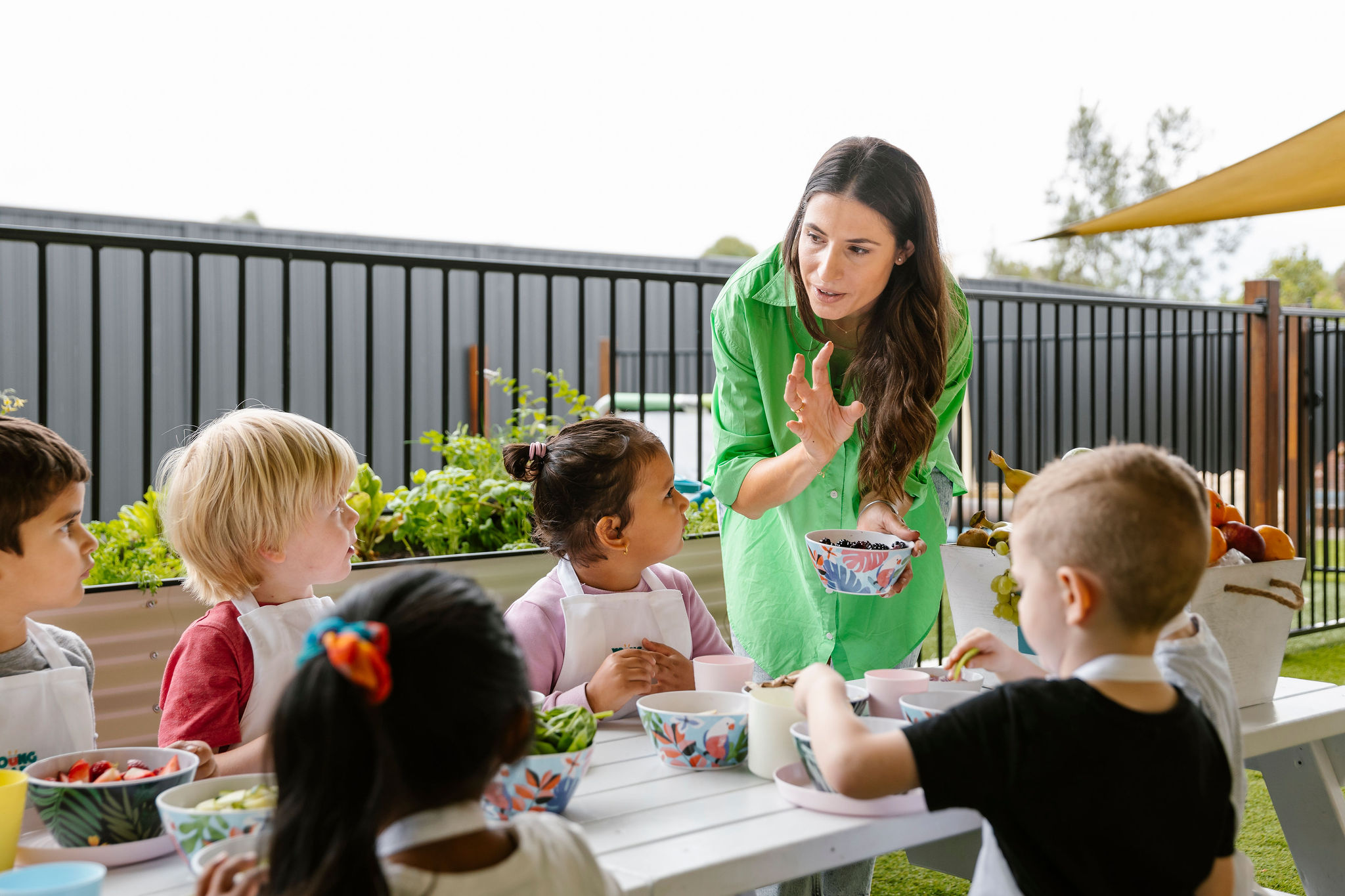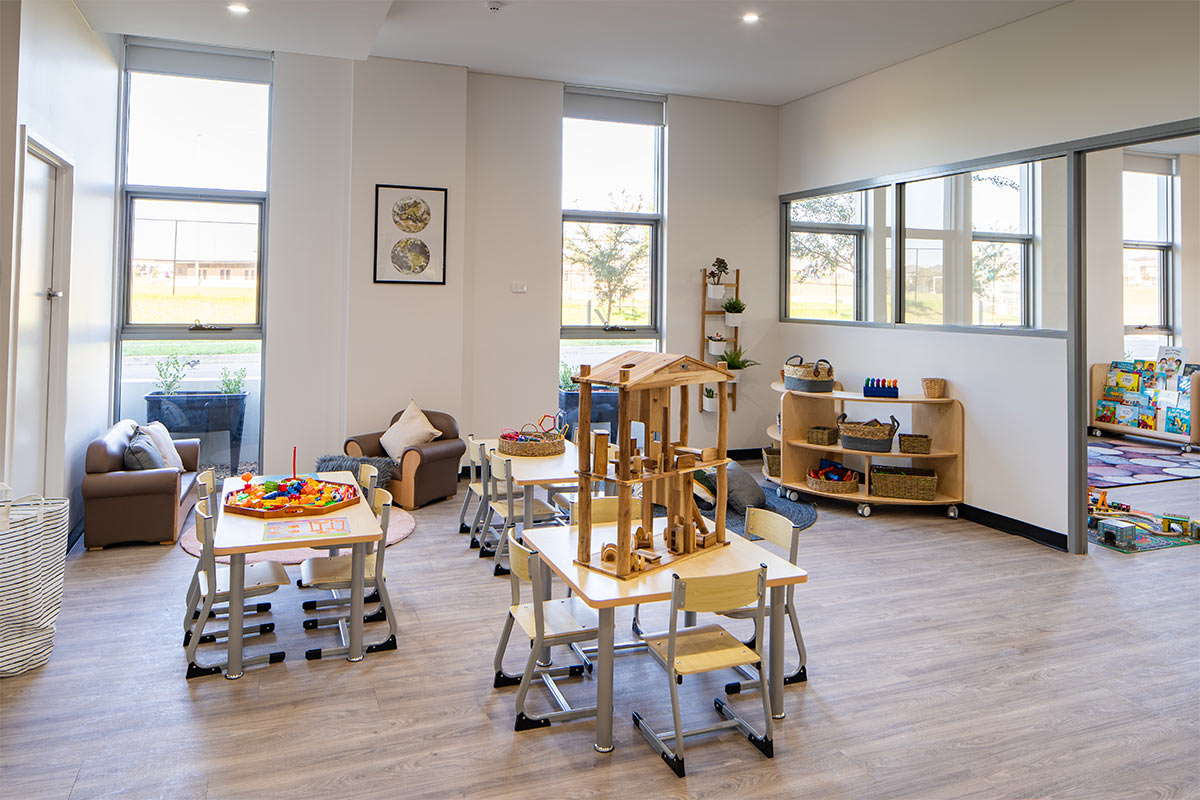To coincide with National Nutrition Week, early learning education provider Young Academics and its partner Michelle Theodosi from The Lifestyle Dietitian have shared 12 top tips to help parents encourage their little ones to eat more fruit and veggies – happily.
“At Young Academics, we understand our early learning environments play a pivotal role in exposing children to a variety of nourishing foods to promote healthy eating habits for life, and we realise how critical the first five years of life are to establishing these behaviours, which is why we partner with Michelle and her team – and share their expert knowledge with our families,” explains James Kazzi, Managing Director.
“When it comes to children under 12, more than 90% aren’t meeting the current guidelines for vegetable intake, with 40% eating less than the recommended amount of fruit, and less than 1% of two and three-year-olds eating the recommended 2.5 serves of veggies and legumes each day. And it doesn’t improve with age, with 93% of adults still not eating enough vegetables,” said Michelle.
“Nutrition plays a vital role in brain development for the under-fives, influencing how their brain will grow and function, with nutrient deficits linked to reduced brain cell function, underlining the importance of a balanced diet as part of the building blocks for a healthy child.”
“By creating a routine, introducing a wide range of foods, and getting children to eat in a social setting, the early education environment helps model good eating behaviour, which is key to creating a positive relationship with food from an early age.”
Following are Michelle’s top tips to encourage toddlers and preschoolers to improve their intake of fruit and vegetables:
- It’s important to make mealtimes structured and timely to establish a routine that gets children ready and excited to eat in the first place
- Cater food to the child’s age by appropriately cutting up portions (fun shapes can help too)
- Make meal time a no-screen time – the less distractions the better
- Try to eat at least one meal a day together as a family – more if and when you can – to make mealtimes more fun, improve social connection and provide opportunities to role model healthy eating behaviour
- Keep a fruit bowl visible to offer when kids are seeking snacks – and make your life simple by not having processed snacks visible (or accessible to little hands) in the pantry. If they don’t see it, they’re less likely to ask for it
Set an example of healthy eating yourself – children look to you for inspiration, and model your behaviour. If you turn up your nose at snacking on cucumber and carrot, so will they! - Let the children see you trying new foods for the first time, to help them overcome fear and anxiety around new flavours and textures and to broaden their diet
- To sneak more veggies into your child’s diet, try clever swaps, such as cauliflower mac’n’cheese rather than the pasta version
- If your toddler gravitates towards the sweet stuff, try serving capsicum in sticks or pop cherry tomatoes on toothpicks to add a fun, finger food element (under supervision!)
- Baked sweet potatoes are a tasty alternative to white spuds and packed with more nutrients
- To boost your child’s intakes of those goodness-packed greens, try lettuce wraps with a burger patty, grate zucchini into pasta sauce, serve edamame as a snack, or poach apples for a healthier dessert option
- Blueberries are a terrific on-the-go snack in a tub, while blackberries in yoghurt make a tasty dessert
Michelle added that making a conscious effort to ‘eat the rainbow’ is a great way to boost your child’s intake of fruit and vegetables, and an approach she incorporates when designing the seasonal menus and running the hands-on nutrition workshops for the children at Young Academics early learning centres.
Finally, when it comes to nutritional bang for buck, Michelle suggested incorporating the following ‘super foods’ into your child’s diet wherever possible: rolled oats, frozen berries, spinach, eggs, legumes, wholegrain bread and Greek yoghurt.
Green Veggie Frittata
Ingredients
12 eggs, 1 cup grated cheese, one large shallot, clove of garlic, 3 cups broccoli florets (or baby spinach/mixed green veggies), one avocado
Method
Preheat oven to 180°C. Add 12 eggs to a large bowl, add salt and pepper, whisk until liquid (this will take a while). Add grated or crumbled cheese to the egg mixture and set aside. Finely slice shallots and garlic. Dice vegetables and set them aside. Preheat a frying pan over low-medium heat. Add a splash of olive oil to the hot pan, then add sliced shallots and garlic and sauté for 30-60 seconds. Add veggies and sauté for 4-5 minutes (if using baby spinach it will only be about 1 minute). Add the egg & cheese mixture to the pan, remove it from the stove and place in the oven for approximately 20-25 minutes until lightly golden.
Remove from the oven and place on a heatproof surface for at least 10 minutes to rest. Use a knife to run along the edges to remove from pan, then use two spatulas to lift frittata out of the pan to serve. Top with diced avocado to serve.
Ingredients:
½ cup fruit-free, nut-free muesli, watermelon, cut into triangle slices, 500g yoghurt, chopped seasonal fruit of your choice (ie berries)
Method:
Spread approximately 100g of yoghurt on each slice of watermelon to cover the surface Sprinkle approximately 1 tablespoon of muesli. Top with a small handful of chopped fruit. Yum!
We understand the significance of nutritious foods at all Young Academics childcare centres and are committed to providing these building blocks daily to foster strong, happy and healthy kids. With each of our centres featuring an inclusive menu designed by Michelle Theodosi from The Lifestyle Dietitian, and an in-house chef, we know good nutrition and only want the best for your little one.
Get in touch with Young Academics today to explore how we navigate nutrition in a childcare setting.



 BACK
BACK



